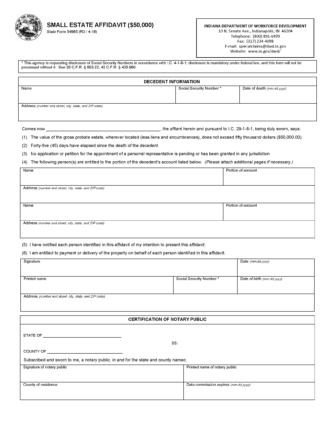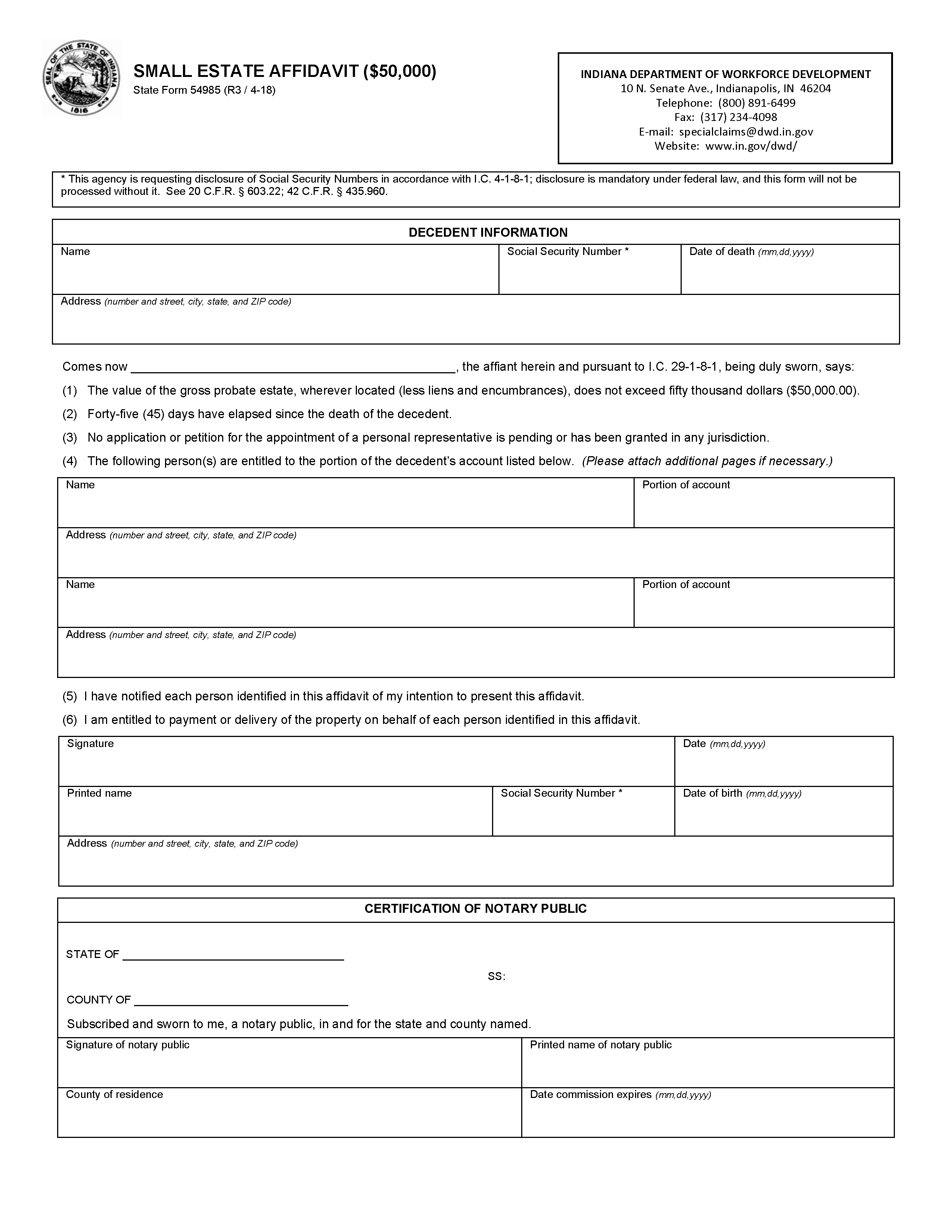Laws
- Statute: § 29-1-8-1
- Maximum Estate Value (§ 29-1-8-1(b)(1)(C)): $100,000 (less liens, encumbrances, and funeral expenses).
- If the decedent died before July 30, 2022, the max value is $50,000 (§ 29-1-8-1(b)(1)(B)).
- Mandatory Waiting Period (§ 29-1-8-1(a)): Forty-five (45) days
- Where to File: No filing required.
How to Record (4 Steps)
- Step 1 – Requirements
- Step 2 – Complete Affidavit and Assemble Documents
- Step 3 – Notarize Affidavit
- Step 4 – Distribution of Assets
Step 1 – Requirements
The following requirements must be met for a successor to use a Small Estate Affidavit:
- The total value of the estate cannot exceed $50,000 (not including liens, mortgages, and funeral expenses).
- Forty-five (45) days have passed since the death of the decedent.
- There is no appointment of a personal representative that is pending or that has been granted.
- The affiant is the decedent’s legal heir.
- The affiant has informed any other beneficiaries of their intention to use the affidavit.
Step 2 – Complete Affidavit and Assemble Documents
Complete the Small Estate Affidavit and obtain a certified copy of the decedent’s death certificate. If more space is needed to list heirs or property, additional pages may be attached. If the decedent left a will, it should also be acquired.
Step 3 – Notarize Affidavit
Take the completed affidavit and certified death certificate before a notary public for notarization. Photo ID will be required. The notary may also require the successor to bring a copy of the decedent’s will.
Step 4 – Distribution of Assets
Once the affidavit has been notarized, the affiant can use it to collect the decedent’s property and records from the person, bank, broker, or institution where it is kept. If the estate includes motor vehicles or watercraft, the affiant will need to complete the Affidavit for Transfer of Certificate of Title and present it at a Bureau of Motor Vehciles (BMV) office to transfer the vehicles’ ownership. All creditors who have a claim on the estate must be compensated before the estate can be distributed to the heirs and legatees.

